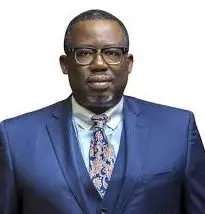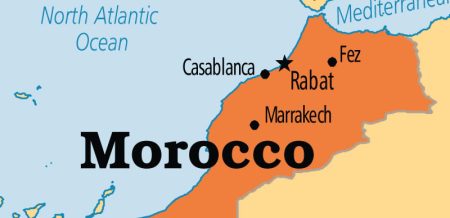Dele Oye’s two-year tenure as President of the Nigerian Association of Chambers of Commerce, Industry, Mines, and Agriculture (NACCIMA) and six-month leadership of the Organized Private Sector of Nigeria (OPSN) has concluded, marked by significant achievements in strengthening the private sector’s role in national development. His leadership focused on unifying the often-fragmented private sector, promoting trade-friendly policies, attracting foreign investment, and solidifying NACCIMA’s financial standing. Oye’s approach emphasized collaboration with government stakeholders, advocating for policies like the Single Trade Window to streamline trade processes and improve efficiency. Through international business missions, he successfully positioned Nigeria as an investment destination, generating discussions around potential investments worth billions of dollars. Furthermore, he fostered a stronger internal structure within NACCIMA, leading to increased membership and a more robust financial position, with substantial bank balances accumulated during his presidency. Oye’s legacy centers around consolidating the private sector’s voice and creating a more collaborative and influential platform for businesses in Nigeria.
Oye’s presidency was met with internal and external challenges. Internally, he addressed unhealthy competition between chambers within NACCIMA, fostering a more collaborative and unified approach. Externally, he navigated a turbulent economic landscape characterized by high inflation, diminished industrial capacity, and regulatory hurdles. These challenges, however, became catalysts for change, prompting necessary reforms within the organization and a more proactive approach to engaging with the government. Oye prioritized constructive dialogue with government entities, advocating for frameworks that emphasized cooperation and mutual benefit. He championed initiatives aimed at enhancing trade efficiency and promoting Nigeria as an investment hub, ultimately striving to create a more conducive business environment. Through his leadership, he successfully transformed challenges into opportunities, positioning NACCIMA as a more vocal and influential participant in national economic discourse.
Oye’s accomplishments encompassed several key areas. Firstly, he significantly increased NACCIMA’s membership, reflecting growing confidence in the organization’s advocacy and collaborative efforts. Secondly, he fostered close collaboration with government stakeholders, supporting the implementation of initiatives like the Single Trade Window Policy, crucial for streamlining trade procedures and improving the ease of doing business. Thirdly, as OPSN Chair, he unified private sector voices, ensuring a more cohesive and effective advocacy strategy. This unification amplified the impact of the private sector’s input on national economic policy. Finally, his leadership facilitated international business missions that showcased Nigeria’s investment potential, resulting in substantial investment interest.
His leadership also focused on building sustainable solutions for long-term growth. He prioritized initiatives that addressed both immediate needs and fostered a more resilient business environment for the future. Oye emphasized the importance of financial literacy and capacity-building programs for Micro, Small, and Medium Enterprises (MSMEs), empowering numerous businesses to thrive. He believed in investing in technology-driven solutions, promoting agricultural processing, and maintaining strong partnerships with the government to create a more conducive business environment. His vision for NACCIMA included leveraging its extensive network of over 100 chambers of commerce to promote targeted collaborations across industries, fostering innovation and enhancing competitiveness.
Oye’s impact on the business community is evident in the increased engagement of NACCIMA in economic discussions, providing members with a stronger voice and platform to navigate the competitive landscape. His efforts to empower businesses through financial literacy campaigns, partnerships with institutions like the Bank of Industry, and capacity-building programs for MSMEs have further strengthened the private sector. His leadership transformed NACCIMA into a more proactive and influential organization, actively participating in shaping economic policies and contributing to national development. This transformation is reflected in the positive feedback received from members, who acknowledged NACCIMA’s enhanced role as a vocal and engaged participant in economic discussions, supporting their ability to thrive in a competitive market.
In his valedictory note, Oye expressed gratitude to the Federal Government, President Bola Tinubu, the Minister of Trade and Investment, Dr. Jumoke Oduwole, NACCIMA members, the media, and all stakeholders for their support during his tenure. He highlighted the importance of continued collaboration between the private sector and the government, emphasizing the need for investments in technology, agricultural processing, and strong public-private partnerships to foster a conducive business environment. His recommendations for NACCIMA’s future included leveraging its extensive network to promote cross-industry collaborations and stimulate innovation. Oye leaves behind a legacy of a more unified, financially stable, and influential NACCIMA, poised to play a crucial role in driving Nigeria’s economic growth.














